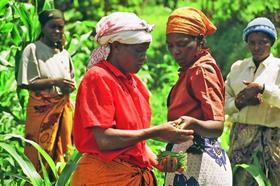
Brussels-based interprofessional network Coleacp has described the justification for the European Commission's decision to increase border controls on French beans and peas imported from Kenya as 'debatable'.
Following a number of cases of pesticide residues exceeding maximum limits, the EU chose at the end of last year to up the frequency of border controls to 10 per cent on such Kenyan products.
Coleacp says that the decision has impacted directly on the lives of thousands of farmers and workers in a country where agriculture is the dominant economic provider.
Additional checks have reportedly led to shipments being delayed, sometimes by more than 48 hours, affecting both the quality and shelf life of the produce, and causing concern to producers, exporters and importers alike.
Fpeak, the Fresh Produce Association of Kenya, commented: “The increased controls have affected the Kenyan bean industry significantly, resulting in a 25 per cent dip in bean sales in January 2013 compared to January 2012.'
The association went on: 'In January 2013, about 4,200 tonnes of beans and peas in pods were exported to the EU, comprising 3,200 consignments. Out of these, about 250 laboratory tests were done, and four rapid alerts were received. Four rapid alerts is four too many, and we must act to bring this number to near zero. It is important, however, to put it into context: over 99.9 per cent of the samples were negative, meaning that the vast majority of Kenyan beans are compliant with the EU rules on pesticides.”
Coleacp added that the maximum residue level (MRL) of most of the products detected was set at the level of detection (LoD), meaning that the MRLs were extremely low and not based on their level of risk.
Guy Stinglhamber, director ofColeacp’s Brussels office, expressed the need for action. “The solution is for PIP and Coleacp to increase training as soon as possible and to support the national food safety authority,' he said. 'We are organising a strong action plan with various partners to increase our support in the short, medium and long term.”



